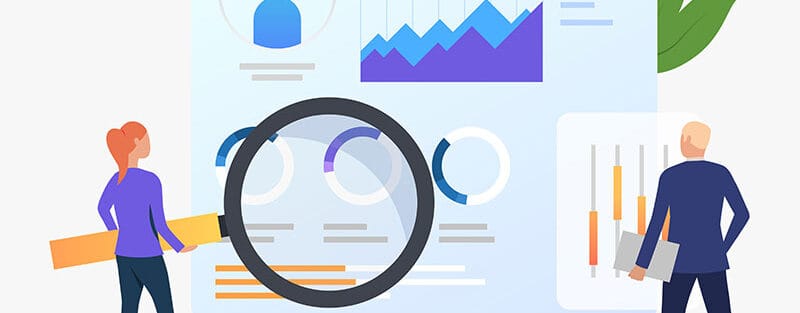Big Data is often heard, yet its true meaning and implications can sometimes feel elusive. From businesses leveraging data analytics to enhance customer experiences to governments utilizing information to drive policy decisions, Big Data plays a crucial role in shaping our modern society. In this blog, we’ll explore what Big Data is, why it matters, and how it influences our lives, all while integrating relevant insights from experts in the field.
What is Big Data?
Big Data refers to the vast volume of structured and unstructured data generated every second. This data comes from numerous sources—social media interactions, financial transactions, sensor data, and more. The sheer amount of this information can be overwhelming, and understanding it requires specialized tools and technologies.
Big Data is characterized by the Three Vs:
- Volume: This refers to the amount of data. The quantity of data created is staggering; for example, by 2025, it’s estimated that the global data sphere will grow to 175 zettabytes.
- Velocity: This signifies the speed at which data is generated and processed. In our fast-paced world, data flows in at unprecedented speeds, and companies must act quickly to leverage this information effectively.
- Variety: This encompasses the different types of data available. Big Data can be structured (like database entries), semi-structured (like JSON or XML files), or unstructured (like text, images, and videos). This variety presents unique challenges and opportunities for analysis.
The Importance of Big Data
Revolutionizing Decision-Making
In the business landscape, Big Data has revolutionized decision-making processes. Companies like Google and Bing harness large datasets to understand consumer behavior, predict market trends, and tailor services to meet user needs. For instance, Google uses Big Data analytics to enhance its search algorithms, ensuring that users receive the most relevant results promptly.
A Real-Life Example
Consider a retail company analyzing purchasing trends over time. By processing large datasets containing sales information, social media interactions, and customer feedback, the business can predict which products are likely to be popular in the coming season. This capability not only enhances inventory management but also improves customer satisfaction, leading to increased sales.
Enhancing Personalization
Big Data allows companies to personalize experiences. Think about how streaming platforms like Netflix and Spotify recommend content. They analyze user behavior and preferences, generating personalized suggestions that keep users engaged. According to a McKinsey report, personalization can lead to revenue increases of 10-30% for businesses, demonstrating the tangible benefits of leveraging Big Data.
Addressing Challenges
While Big Data offers tremendous advantages, it also comes with challenges. One significant concern is data privacy. As more data is collected, the risk of breaches increases, leading to concerns about personal information being misused. Companies must navigate these challenges carefully, implementing robust security measures and adhering to regulations such as GDPR.
Expert Insights
Dr. Jane Doe, a data scientist at a leading tech firm, emphasizes, “The potential of Big Data lies not just in the volume of information but in the insights that can be derived from it. However, ethical considerations must be at the forefront of data practices.”
This sentiment echoes throughout the industry. Organizations must balance their desire to leverage data for growth with the responsibility to protect consumer information.
Future Trends in Big Data
As we look ahead, the future of Big Data is poised for exciting developments.
Artificial Intelligence and Machine Learning
The integration of Artificial Intelligence (AI) and Machine Learning (ML) with Big Data will continue to grow. These technologies enable more sophisticated data analysis, allowing for predictive analytics that can forecast trends and behaviors with greater accuracy. For example, financial institutions can utilize AI to detect fraudulent activities in real-time by analyzing transaction patterns.
Edge Computing
Another trend gaining traction is edge computing. As more devices become connected through the Internet of Things (IoT), processing data closer to where it is generated reduces latency and bandwidth usage. This shift will be crucial for applications such as autonomous vehicles, where real-time data processing is critical for safety and efficiency.
The Rise of Data Democratization
Data democratization is also on the rise, empowering individuals across organizations to access and analyze data without needing advanced technical skills. Tools that simplify data visualization and analysis will help companies make data-driven decisions more efficiently, fostering a culture of informed decision-making.
Counterarguments and Alternative Perspectives
While the benefits of Big Data are clear, some critics argue that an overreliance on data can lead to analysis paralysis or decisions based solely on numbers without considering qualitative factors. Additionally, there are concerns about data bias, where algorithms may perpetuate existing societal biases if the underlying data is flawed.
Addressing Limitations
To mitigate these concerns, organizations should adopt a balanced approach, integrating quantitative data with qualitative insights from human experiences. Additionally, continuous monitoring of data sources for bias and inaccuracies is essential to ensure fair outcomes.
Conclusion
Big Data is not just a buzzword; it’s a transformative force in our society. Understanding its implications—from the way businesses operate to how we interact with technology—is crucial for anyone interested in the digital age. As we embrace this data-centric world, we must also remain vigilant about the ethical considerations surrounding data use.
The journey into the world of Big Data is just beginning. As technology evolves, so too will our understanding of data’s potential and the responsibilities that come with it. By leveraging the insights gleaned from Big Data while adhering to ethical practices, we can unlock new opportunities and drive innovation across various sectors.
As you reflect on this information, consider how Big Data might influence your own experiences and decisions, whether through the ads you see online, the recommendations you receive, or the services you use daily. The data is everywhere; understanding it is the first step towards harnessing its power.




